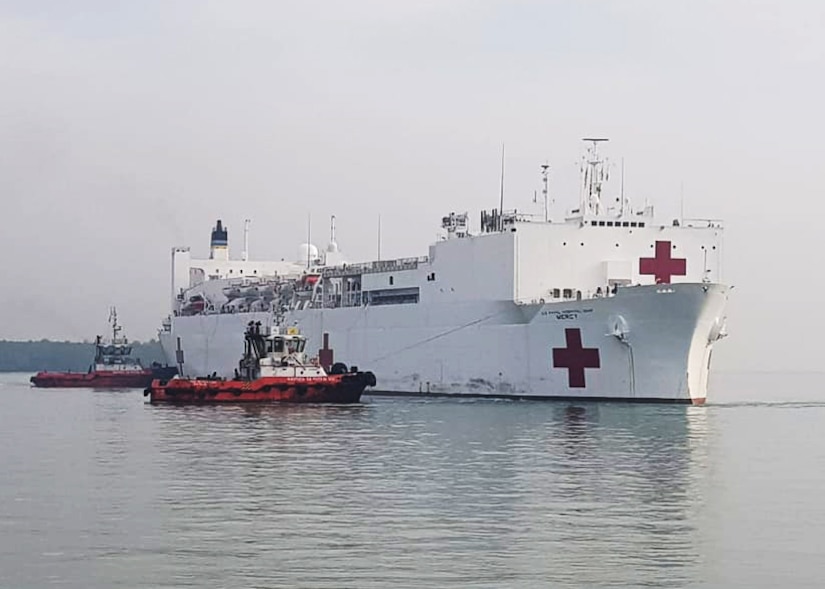By Terri Moon Cronk, DoD News, Defense Media Activity
WASHINGTON -- Former Defense Secretary Frank C. Carlucci
died June 3 at his home in McLean, Virginia. He was 87.
Carlucci was secretary of defense from Nov. 23, 1987, to
Jan. 20, 1989, under President Ronald Reagan.
“Secretary Carlucci served our great nation under four U.S.
presidents, both republican and democrat, as a lieutenant in the United States
Navy, the Ambassador to Portugal, deputy director of the Central Intelligence
Agency, and several other roles within the Department of Defense before
becoming secretary of defense,” Defense Secretary James N. Mattis said in a
statement.
“Appointed in 1987, with the end of the Cold War near,
Secretary Carlucci was a transformative leader,” Mattis said. “He changed the
way the department worked with Congress, and managed critical defense issues,
such as procuring major weapon systems, and rebalancing military priorities and
resources under dynamic and challenging geopolitical circumstances.
“Secretary Carlucci left an indelible mark on the Department
of Defense,” he continued. “On behalf of all our service men and women and
civilians, past and present, we will forever be grateful for his leadership and
long honor his patriotism, service and legacy.”
Numerous Government Positions
Carlucci was a Foreign Service officer in the State
Department and later served as ambassador to Portugal. He was deputy director
of the Office of Management and Budget, undersecretary of Health Education and
Welfare, and deputy director of the CIA.
Appointed as deputy defense secretary in February 1982 under
Defense Secretary Caspar Weinberger, Carlucci monitored the Pentagon’s
day-to-day operations and oversaw the defense budget and procurement. His
initiatives dealt with bringing more stability and order into the procurement
system.
He left the Defense Department briefly in 1983 for the
private sector, but returned to federal service at the White House as assistant
to the president for national security affairs.
With extensive roots in national security, Carlucci
succeeded Weinberger and became defense secretary on Nov. 23, 1987.
He was known for doing things his way, and while he served
only 14 months as secretary, his brand was clear through his initiatives such
as weapons systems and downsizing the military, as well as through his
relationship with Congress.
In those 14 months, Carlucci made 13 foreign visits around
the globe, and he was the first defense secretary to visit the Soviet Union.
Controversial Domestic Issues
At home, Carlucci faced numerous controversial domestic
issues. He dealt with a shrinking defense budget for fiscal year 1989 after the
stock market crash of 1987. In 1988, to tighten the defense budget belt and rid
the department of unnecessary military facilities, Carlucci proposed the
Commission on Base Realignment and Closure, which ultimately eliminated some 90
bases by September 2011. He was up against tough opposition from members of
Congress who wanted to save military bases and posts in their districts.
Carlucci’s proposed $299.5 billion defense budget before
Congress in 1988 included cutting 36,000 troops from a force of 2,174,000. That
translated into cuts in all the military departments, for which he faced great
opposition. The secretary of the Navy reportedly resigned after a Carlucci
order to retire 16 frigates.
The budget request also provided for $4.6 billion for the
Strategic Defense Initiative – also known as the “Star Wars” program – and $200
million for the Midgetman missile.
Reagan vetoed the bill that Congress passed, citing his
displeasure over cuts in SDI and restricted Pentagon spending for space-based
antimissile interceptor development, which was key to the SDI program. A bill
finally was hammered out, and Carlucci accepted a spending ceiling.
INF Treaty
Carlucci was very much in favor of the Intermediate-Range
Nuclear Forces Treaty of 1987, which he saw as enhancing NATO security. It
would reduce the Soviet’s military threat to Western Europe by taking out a
class of missile systems from the area, and show that NATO nations had enough
political will to support decisions to secure their safety.
He also made it known that the INF Treaty included tough
verification provisions, and to put them in place, Carlucci created the On-Site
Inspection Agency in January 1988.
Carlucci also dodged some slings and arrows from the
long-term war between Iran and Iraq. In 1988, U.S. ships destroyed two Iranian
oil platforms to retaliate for damage sustained by the USS Samuel Roberts in the
Persian Gulf from an Iranian mine. U.S. ships sank and severely damaged six
Iranian ships. Reagan ordered the Navy to expand its work in the Gulf to
protect neutral merchant ships when they were attacked. Carlucci kept a close
eye on the events.
Proudest Accomplishments
Carlucci left office at the start of President George H. W.
Bush’s term. He told reporters three of his accomplishments made him most
proud: convincing Congress to go along with BRAC, developing a positive
relationship with Soviet military leaders, and successful tanker escort
operations in the Persian Gulf. But his achievements totaled much more than
those three.
He also was responsible for establishing funding priorities
and guiding the cuts in the fiscal year 1989 defense budget, taking a calm
approach to the Pentagon procurement fraud investigation, emphasizing the
dangers of long-range missile proliferation to world leaders, and convincing
Congress not to use military force to close off U.S. borders in the battle
against drugs. Carlucci said he most disappointed with how the Pentagon had not
been able to preserve the defense consensus in Congress and the nation when
developments in the communist world proved that negotiating from strength
works.









